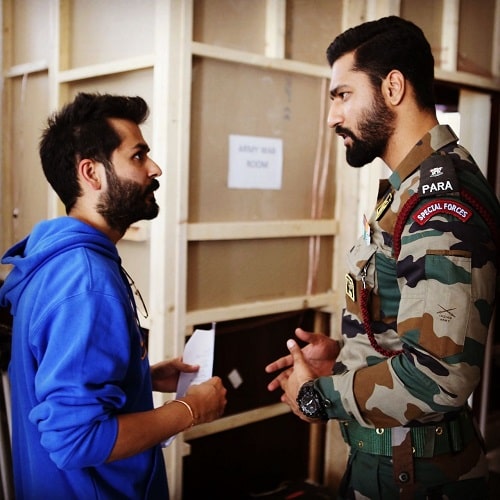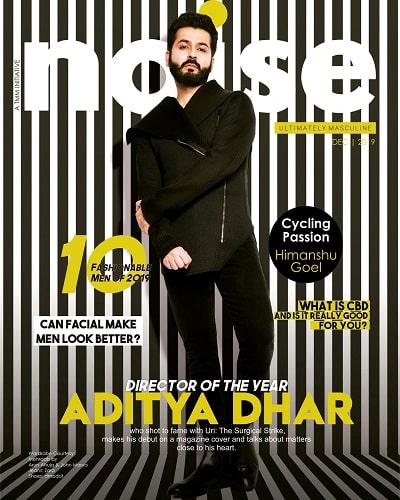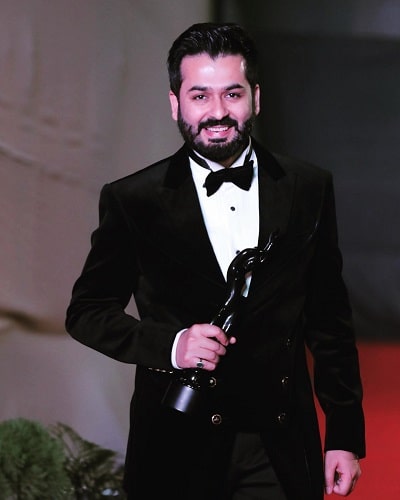
| Bio/Wiki | |
|---|---|
| Profession(s) | Film Director, Lyricist, and Writer |
| Famous For | Being the husband of the Indian actress Yami Gautam |
| Physical Stats & More | |
| Height (approx.) | in centimeters– 170 cm in meters– 1.70 m in feet & inches– 5’ 7” |
| Eye Colour | Black |
| Hair Colour | Black |
| Career | |
| Debut | Film (Lyricist): Kabul Express (2008)
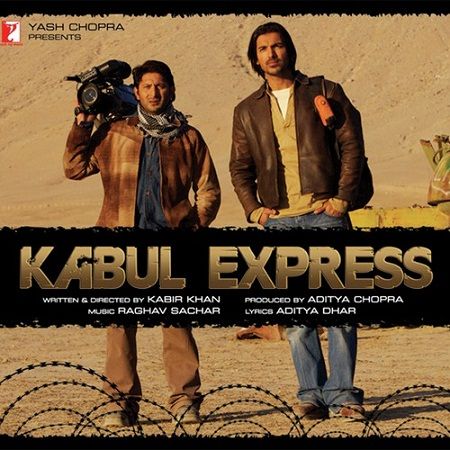 Film (Director): Uri: The Surgical Strike (2019)  |
| Awards, Honours, Achievements | 2019 • 66th National Film Award- Best Director for Uri: The Surgical Strike 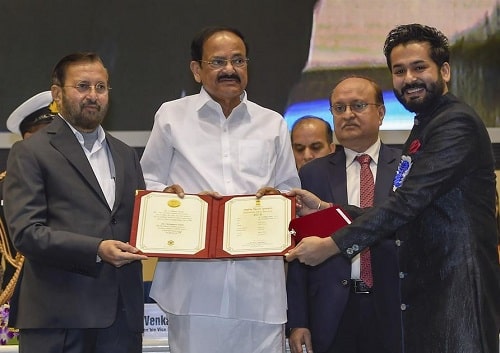 • Jagran Film Festival- Best Debut Director for Uri: The Surgical Strike 2020 |
| Personal Life | |
| Date of Birth | 12 March 1983 (Saturday) |
| Age (as of 2021) | 38 Years |
| Birthplace | New Delhi |
| Zodiac sign | Pisces |
| Nationality | Indian |
| Hometown | New Delhi |
| Religion | Hinduism [1] |
| Caste | Kashmiri Pandit [2] |
| Relationships & More | |
| Marital Status | Married |
| Affairs/Girlfriends | Yami Gautam (Actor) |
| Marriage Date | 4 June 2021
 |
| Family | |
| Wife/Spouse | Yami Gautam |
| Parents | Father– Name Not Known Mother– Dr. Suneeta Dhar (Ex-Dean & Head, Faculty of Music & Fine Arts, University of Delhi) |
| Siblings | Brother- Lokesh Dhar (elder) |
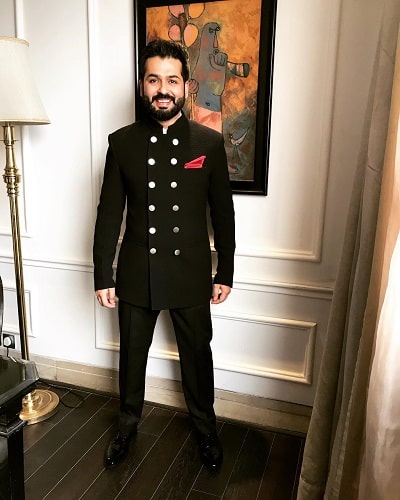
Some Lesser Known Facts About Aditya Dhar
- Aditya Dhar is an Indian director, writer, and lyricist.
- He has worked with the theatre group ‘Delhi Music Theatre’ (DMT) for almost 20 years.
- On 5 September 2006, he moved to Mumbai from Delhi and started working as an assistant director. In an interview, he talked about his struggling days. He said,
Initially, I used to get up early every morning and go to every production house. I would land up there asking for jobs. I have worked in theatre in my initial stages of life and I have always been mesmerized with how the directors work rather than what actors do. In those days, it was ridiculous the way they used to treat assistants. It was only a few production houses wherein they will ask you for water.”
- He has also worked as an RJ in his initial years in Mumbai.
- He has penned down the lyrics of various Hindi films like ‘Haal-e-Dil’ (2008), ‘One Two Three’ (2008), and ‘Daddy Cool’ (2009).
- Aditya wrote the dialogues for Hindi films like ‘Aakrosh’ (2010) and ‘Tezz’ (2012).
- In 2019, he debuted as a director in the Hindi film ‘Uri: The Surgical Strike’ and won the National Award for the film. He also wrote the screenplay of the film.

Aditya Dhar on the sets of ‘Uri- The Surgical Strike’
- In 2019, he was featured on the cover page of Noise magazine.

Aditya Dhar featured on the cover of Noise magazine
- As of 2021, he is filming for the Hindi film ‘The Immortal Ashwatthama’ with Vicky Kaushal in the lead role.
- In an interview, he shared that it was very difficult for him to get some good work in Bollywood. He said,
I still remember I was in Santacruz and someone told me that there is some work in GS Entertainment but when I went there, they denied having any opportunity. As I walked out, I saw Vidhu Vinod Chopra’s production house. I entered there and by this time, I was completely tired after being shunned by many production houses. I didn’t have any backing and I wasn’t from any film background. I was ready to work as an intern too. I entered the production house and walked to the receptionist asking for a job, she pointed out to a gentleman sitting there called Mithun Gangopadhyay and since then he has been the closest friend I have in Mumbai. He was also an assistant director there and he had joined a year ago.”
- In 2016, he was working on a Dharma Productions film ‘Raat Baaki’ starring Katrina Kaif and Fawad Khan, but the film got shelved due to the terrorist attacks in Uri in September 2018, because the Pakistani artists were banned in India after the attacks. [3]
- Amid the coronavirus pandemic in 2020, he supported the ‘We Will Survive’ campaign working for the welfare of the needy people.
- Aditya Dhar is an avid cricket lover.
- In an interview, he shared that he was suffering from a neurodevelopmental disorder, Dyslexia, suffering from a neurodevelopmental disorder. In childhood, he was weak in studies but was always inclined towards art and drama. [4]
- During an interview, he shared that in his childhood, he wanted to become an army officer. He said,
I was always interested in the army, I wanted to get into the army. As a Kashmiri Pandit, I have been hearing about terrorism from childhood. Directly or indirectly, we have also been victims of terrorism. So, when I heard about the strikes, I wanted to know how the army pulled this off. By the end of my six months of research, I realized this was one of the best covert military operations ever conducted by the Indian Army and I knew I had to tell this story.”


